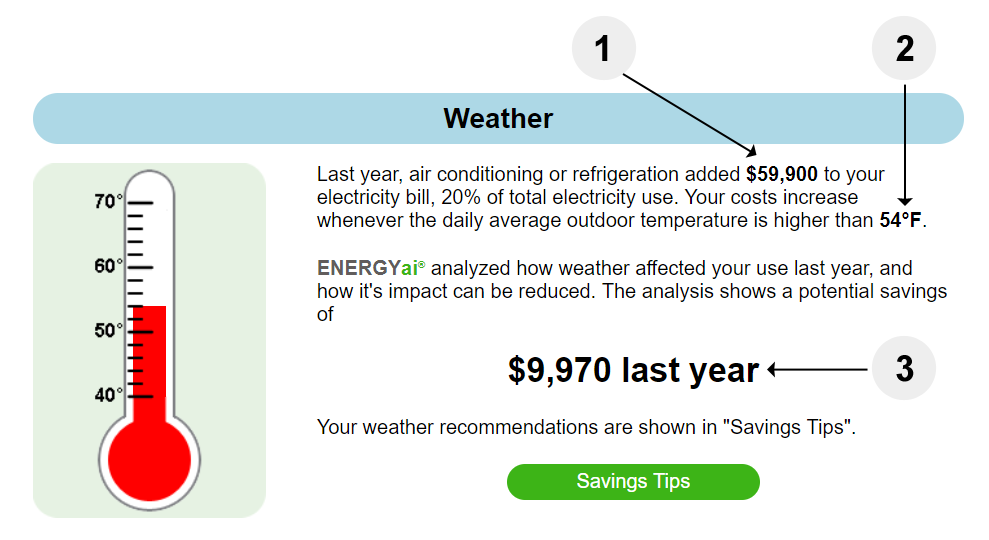Yes, it's been hot lately (and feels it)
Updated 20 August 2019
It was hot here in northern California last week. Triple digit temperatures in the central valley and foothills, mid-80s near the coast. The heat wave prompted some questions from subscribers about their alerts - " says my business is over budget. But does it take weather into account? I have to keep occupants cool (or food refrigerated)!"
The short answer is yes, adjusts your budget for weather. At least it tries to.
The longer answer is that analyzes your historic electricity use to determine whether or not it tracks your local weather, both hot and cold. If it finds a statistically significant relationship, adjusts your budget up and down every day based on that day's weather. You can see the results in your meter's Energy Profile:
This section shows how weather impacted your energy costs over the last year, and how it continues to affect your daily budget:
- Total cost of weather-driven electricity over the last year.
- This is your meter's "balance point temperature". In this example, electricity use increases whenever the daily average outdoor temperature is above 54°F (note this is the daily average temperature, not the peak temp for the day). For heating, this is the temperature below which use increases. As a rule of thumb, the balance point temperature for cooling should be 55°F or higher (55°F or lower for heating). See Savings Tips if you're outside this range.
- estimates how much you might have saved last year if your HVACR equipment is regularly maintained. Of course, maybe your equipment is already well-maintained, this estimate is based on average conditions.
If you don't have a Weather section in your Energy Profile, it doesn't necessarily mean your meter doesn't include heating or cooling energy. It just means that use does not track local weather patterns. This might happen if the equipment is not controlled by a thermostat. For example, if you manually turn on air conditioning only when it feels too warm, that may not track weather closely enough for to pick up.
But you might be thinking "If is adjusting my budget upwards on hot days, why am I still over budget on some of them?" If your alert shows the over-budget use is happening during afternoon hours, it may be caused by operational changes. For example, someone may have lowered the thermostat temperature, or reduced the setback hours.
It's also not unusual to see over-budget energy costs even after outdoor temps have returned to normal. If someone messed with the thermostat during the hot spell, and then forgot to reset it, should catch that.

